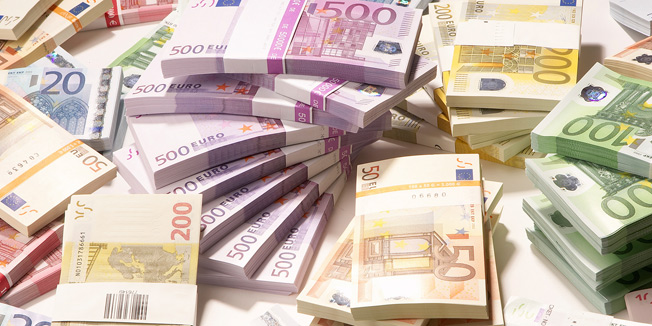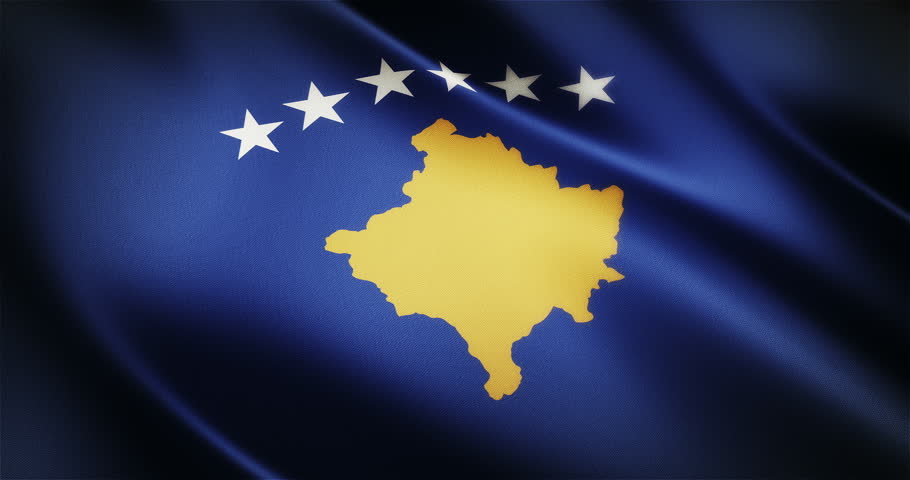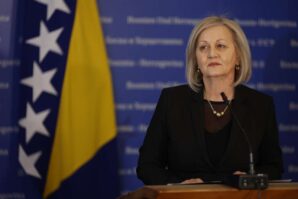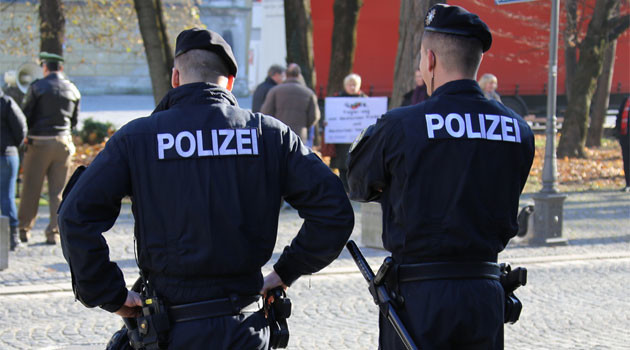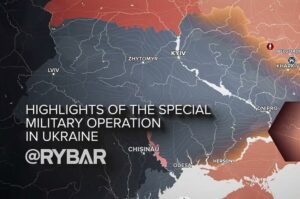 Another favorite destination of mine, especially when I feel the need to leave the banks of the Miljacka for a day or two, is the myriad of volunteer groups from my country still active in Bosnia-Herzegovina. Most of them have a bond with Bosnia that goes back many years. The recent inundations made some of them step up their regular efforts. Every now and then, a new initiative comes to my attention: army veterans, civil service clubs, schools, church groups and – a recent discovery: owners of all-terrain vehicles and the furniture industry -, they all freely give their time, their labor, their money and goods to help where it is most needed.
Another favorite destination of mine, especially when I feel the need to leave the banks of the Miljacka for a day or two, is the myriad of volunteer groups from my country still active in Bosnia-Herzegovina. Most of them have a bond with Bosnia that goes back many years. The recent inundations made some of them step up their regular efforts. Every now and then, a new initiative comes to my attention: army veterans, civil service clubs, schools, church groups and – a recent discovery: owners of all-terrain vehicles and the furniture industry -, they all freely give their time, their labor, their money and goods to help where it is most needed.
On 27 and 28 August I was in Samac, Doboj, Tesanj and Gracanica. This is what I found:
In Samac, a team of four volunteers from the ‘ProPlan Foundation’ of the Netherlands is repairing damaged houses in Donja Mahal Street; by the end of September three shifts of handymen will have rebuilt or reconstructed a total of 16 dwellings. In the process, ‘ProPlan’ (“helping those who have no helpers”) will spend 200.000 Euro’s on building materials alone. To give you an idea: that’s way more than the amount (300.000 BAM) Prime Minister Niksic granted to the whole of the Gracanica Municipality for the same purpose. During my visit two members of ‘4WD Supporting Bosnia’ dropped by. This Dutch club of owners of all-terrain vehicles travels to Bosnia twice a year with a column of 4W drives loaded with appliances and equipment and the like for people in need. They have been doing this for several years now; they will also install the equipment, if necessary.
Next stop in Samac was Metal Holland, a fine example of Dutch entrepreneurs with Bosnian roots returning to start a company in the country of their birth. Metal Holand – you’ve guessed it – specializes in metal construction, mostly for factory buildings, but also for the metalholandmaritime industry. The company suffered a great deal of damage, workshops and storage site were under one meter of water, but management and staff succeeded with great efforts to be back on their feet in no time. However, the financial losses total several hundreds of thousand Euros. Apart from reconnecting electricity and water supply, the local administration played no part in the restart of Holand Metal. The fire brigade of Samac was not prepared to help out by hosing down parts of the premises to get rid of the remaining mud. Finally, the management convinced the crew of a fire truck from Gracanica to do the job. The embassy will be on the look-out for new developments regarding possible international funding (EU, Worldbank, EBRD et al.) for restoring ‘livelihood’ in the stricken areas. The courageous owners of this company could definitely use some financial assistance to tide them over in these trying times.
A short visit to the regional Musemuseumum of Doboj provided a striking example of how a modest sum from abroad in the hands of dedicated people can work small wonders. Although the ground floor was 70 centimeters under water, the staff managed to salvage most of the collection displayed there. Prompted by the embassy, the Cultural Emergency Fund of the prestigious Prince Claus Fund from The Netherlands donated 15.000 Euros, enough to repair floors and walls; there may even be some money left for the purchase of new furniture and display cases. “Culture is a necessity’, as Prince Claus used to say. A wonderful experience for me to hear these words of the late husband of former Queen Beatrix, whom I had the honor to serve as Private Secretary, quoted by the very capable and enthusiastic museum director, who showed me the renovation works on the ground floor in full progress.
An almost obligatory stop in Doboj for all embassy staff is ‘Prijateljska Kuca’, the children’s home established in 1999 by a formidable Dutch lady, Ms. Marlies van Hoffen. For years, she has been taking care of an average of 10 children in a home funded for 100% by voluntary donations from The Netherlands. Although the home did not suffer during the floods, Marlies lost her car, when the parking in down town Doboj was inundated. She told me she was worried about the start Prijateljska Kuca of the new school year on Monday, 1 September: what would it bring for her kids, as school buildings are still under repair. And would September be another lost month? Will they put thousands of pupils in tents? Reliable information from city hall seemed hard to come by. Her worries highlighted the importance of restoring educational facilities as soon as possible. A necessity identified early on in the damage assessment process. Yet, it is only the UN, with financial assistance from the EU Recovery Program, that is currently working around the clock to restore 92 schools all over Bosnia. The competent authorities on the various levels seem clueless how to tackle this challenge and have made no progress.
One of the star performnordenters in the stable of Dutch Bosnian joint-ventures is Nord Ent/Lockwood from Tesanj. As always, it was an inspiring visit to this successful manufacturer of high-end, high-quality furniture made of Bosnia’s finest woods. General Manager Nazil Hamzic explained that this time, both in May and August, the company workshop and offices escaped undamaged. Just in time and with its own money, Nord Ent had deepened and widened the course of a stream that borders the company’s premises. Mr Hamzic pointed out that production staff have worked two days without pay to produce 50 tables for fellow citizens from the Doboj area that had lost all their belongings. The Dutch partners, meanwhile, have collected among their friends in the furniture industry a truckload of household goods intended for victims of the floods.
I paid a memorable visit to Isowood in Gracanica, partners of Isoform of Leek (The Netherlands), a producer of plywood work tops and panels. Isowood made good use of a startup incentive from my country and was expanding and improving production recently. To my great dismay, I learned that Isowood had been hit twice: In May the floodwaters reached 1,7 meters, again on 6 August the production and storage facilities were under 70 centimeters of water. General-isowoodmanager Ahmetasevic and his financial director Kameric showed me pictures of the havoc caused by the August floods. Three weeks later, thanks to a truly Herculean effort, the place is again spic and span. Only faint traces on the walls spoke of the scale of the disaster and outside a large heap of waterlogged plywood panels is waiting to be disposed of, a very sad sight. Again, assistance from municipal, cantonal, or entity administrators and politicians was negligible. They seem to have lost the money intended for civil protection or are waiting for some other authority to act, my hosts told me. E.g. Isowood paid 200.000 BAM to build an earthen dam to protect its grounds against new floods, which Mr. Ahmetavic is sure will come again in autumn or early spring. No comprehensive plan exists to protect the industrial zone of Gracanica, where – I have been told – a substantial part of Bosnia’s GDP is generated. The local private sector has taken the initiative to fund the construction of a protective ring. This is truly the world upside down. The hard-pressed Isowood management is so fed up by the inability of local authorities to deliver a basic common good – a safe and dry environment to develop a business – that they have decided to relocate part of their production to a safer area.
In a lively discussion over lunch we discussed the possibility of a concerted action by the private sector: “Gracanica can’t afford to be flooded a third time”. As a matter of fact, the whole of Bosnia can’t, as the area is home to many prominent exporting companies. That’s why the employers of Gracanica should not underestimate their clout, I insisted, and should demand immediate action in the form of local plan for flood protection and river management.
In short: an exhaustive but very informative trip. My main findings:
– charitable initiatives from the Netherlands are still going strong, some even after almost 20 years. They are small, but are making a real difference, thanks to excellent people-to-people contacts and a determination to bring relief directly to Bosnians who need it the most.
– everywhere, efficiency and effectiveness of post-flood recovery actions by authorities on the various levels are weak to negligible. There is a genuine concern in the region that disaster will strike again. The weak spots in the lay-out of water defenses are well known, but nothing is happening there.
– private business is in need of clarity about the issue of financial aid to restore ‘livelihood’. All of my hosts are familiar with the amounts and about the sources of funding, but have no clue about how to access them, if and when they become available. There is a role for the embassy of watching developments at the relevant international organizations in Sarajevo closely and communicate concrete and pertinent information to the companies in our network.
Therefore, we will stay in touch with the volunteers and the entrepreneurs. And when the Bosnia Blues gets me, I will take to the road and visit the resilient and dedicated people again. In the coming months I will try to keep you informed about their fortunes.
Jurriaan Kraak, 01.09.2014
Taken from: http://nlinsarajevo.wordpress.com/










